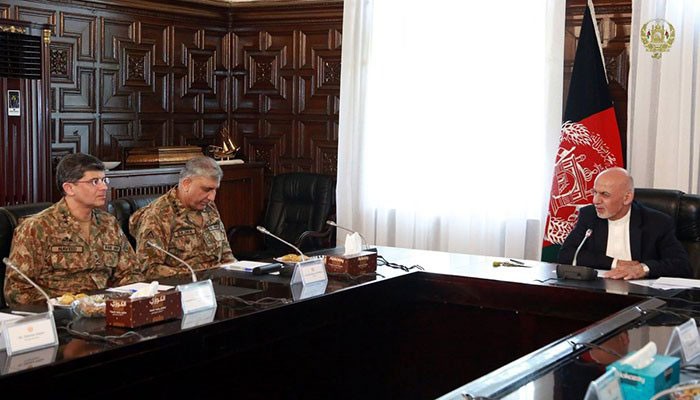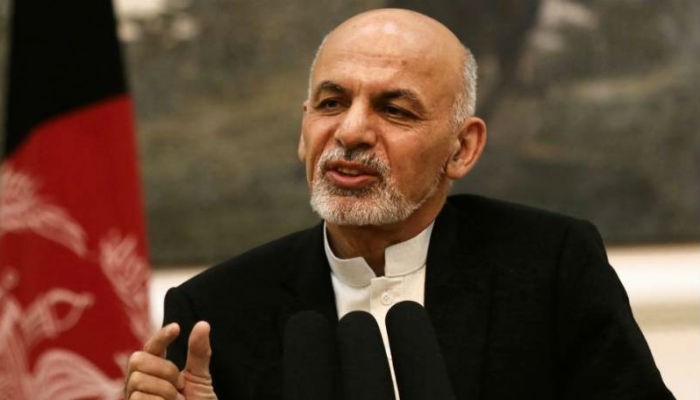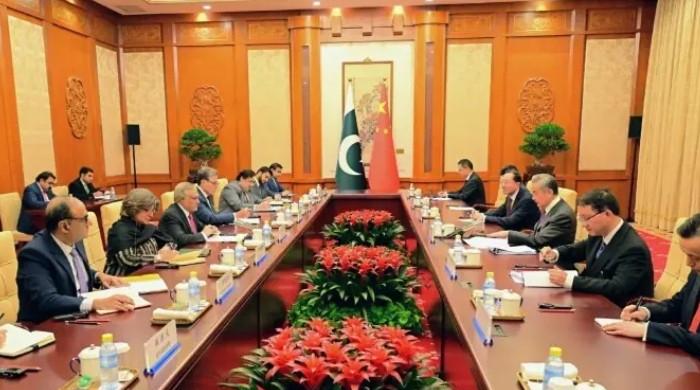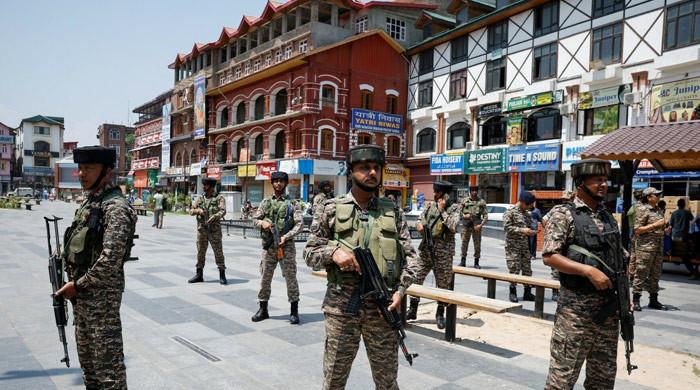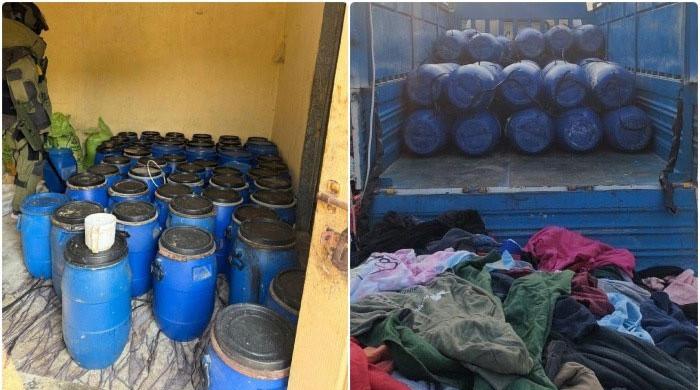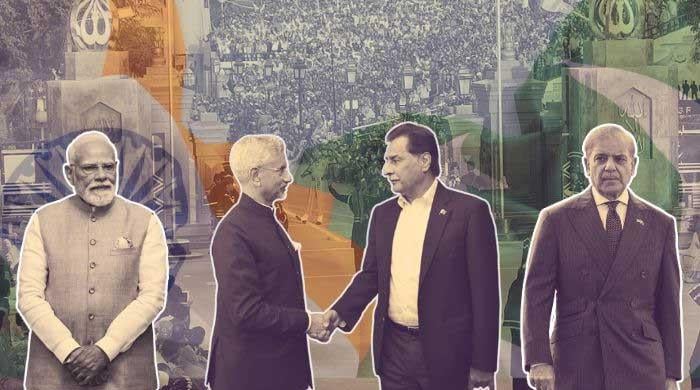‘Cautiously optimistic’ after COAS-Ghani meeting in Kabul: Afghan ambassador
COAS and Afghan president hope to work together for the betterment of their respective countries, says Dr Omar Zakhilwal
October 08, 2017
KARACHI: Afghan Ambassador to Pakistan Dr Omar Zakhilwal said that we should be ‘cautiously optimistic’ after the meeting between Chief of Army Staff General Qamar Javed Bajwa and Afghan President Ashraf Ghani in Kabul.
“COAS and Afghan president hope to work together for the betterment of their respective countries,” he remarked while speaking on Geo News programme Jirga on Sunday.
General Bajwa is serious and sincere about improving relations with Afghanistan, he said, adding “Ghani is also serious about opening doors of friendship with Pakistan.”
We can also move forwards if we respect each other’s sovereignty and not let third parties define our relations, especially India, he added.
After COAS meeting with the Afghan president, Zakhilwal had tweeted: “Candid, positive, respectful, constructive & encouraging meeting in a long time. I'm proud to have played a facilitating role in all this.”
When asked about it, he explained that his description of the meeting was exactly as he saw it. “The issues were discussed in a respectful manner and there was a lot of positivity from both sides.”
The meeting served as an “expression of interest” to put Afghanistan and Pakistan that is “cordial” by removing differences between the two neighbouring countries.
He also explained that the meeting was not ‘achanak’ [suddenly] and that many meetings were held prior to this.
He explained that he has held many meetings with representatives from Pakistan since March 2017. There was a lot of back and forth to make this possible, he shared.
The people on both sides of the border “want countries to be closest possible” and “this is how the leadership should be reflecting”, he added.
Representatives from both the countries should find a path of respect, a path in which they support peace and stability, a path of peace and prosperity.
Over the issue of mistrust between two countries, he said “mistrust is there from both sides, unfortunately. However, we can’t allow it to cripple us from doing anything.”
No matter how many times we fail, we must always try again, he said. "We should learn from mistakes."
There is war in Afghanistan, continuous terrorists’ attacks in Afghanistan and Pakistan. However, whenever an attack occurred in either country the “negative rhetoric would skyrocket.”
However, the negative rhetoric is reducing with time. If it weren’t, then this meeting wouldn’t have been possible, he pointed out.
Ghani to visit in 'opportune' time
On COAS's invitation to Ghani to come to Pakistan, Dr Zakhilwal said that COAS extended an invitation on behalf of Pakistan government.
No further discussion has been held over the matter, he said, adding that Ghani will visit Pakistan at an "opportune" time.
Sharing some meeting details, he said that the discussed issues are very obvious. Moreover, focus was placed on armed opposition and terrorists' sanctuaries, he explained.
Both countries assured to take credible and believable steps to remove sanctuaries from their soil, he added.
Everyone in Afghanistan on board for improving ties
Dr Zakhilwal cleared the misperception that some Afghan leaders are against the negotiations with Pakistan.
He said that "president, all important leaders, prominent leaders and the people want improved relations with Pakistan. In not a single meeting, did I observe any opposition to progress with Pakistan."
Speaking about why Afghanistan Chief Executive Abdullah-Abdullah did not attend the meeting. He said that the official was in India during the meeting, as he had a family commitment.
The meeting received broad-based public and political support, he said.
Misperception that Afghanistan govt not calling shots
The ambassador also shared that there is a misperception that “our interests are not in the driver's seat rather it is someone else.”
The Afghanistan government is not being used and we know our national interests. “Our national interest is to have better relations with Pakistan.”
He added, that there has been “no indication whatsoever from US that any bilateral progress [between Afghanistan and Pakistan] would be sabotaged.”
In fact, the US is encouraging the bilateral progress between Afghanistan and Pakistan.
Speaking about blaming other countries for failed bilateral negotiations, he remarked that it constituents as "avoiding responsibility".
"If we don't succeed, then we haven't really tried."
